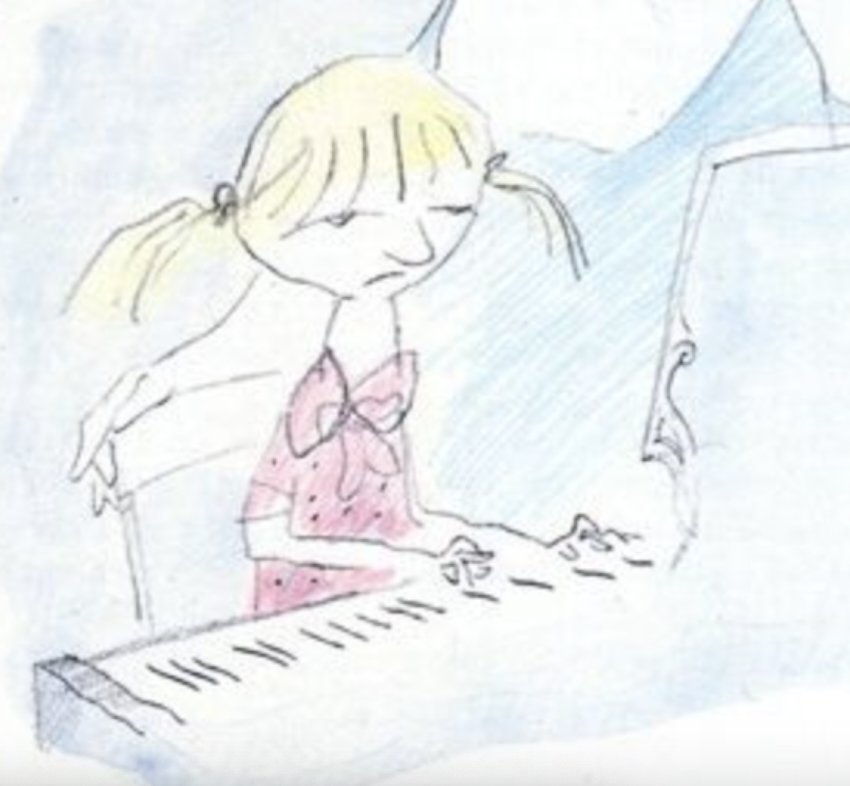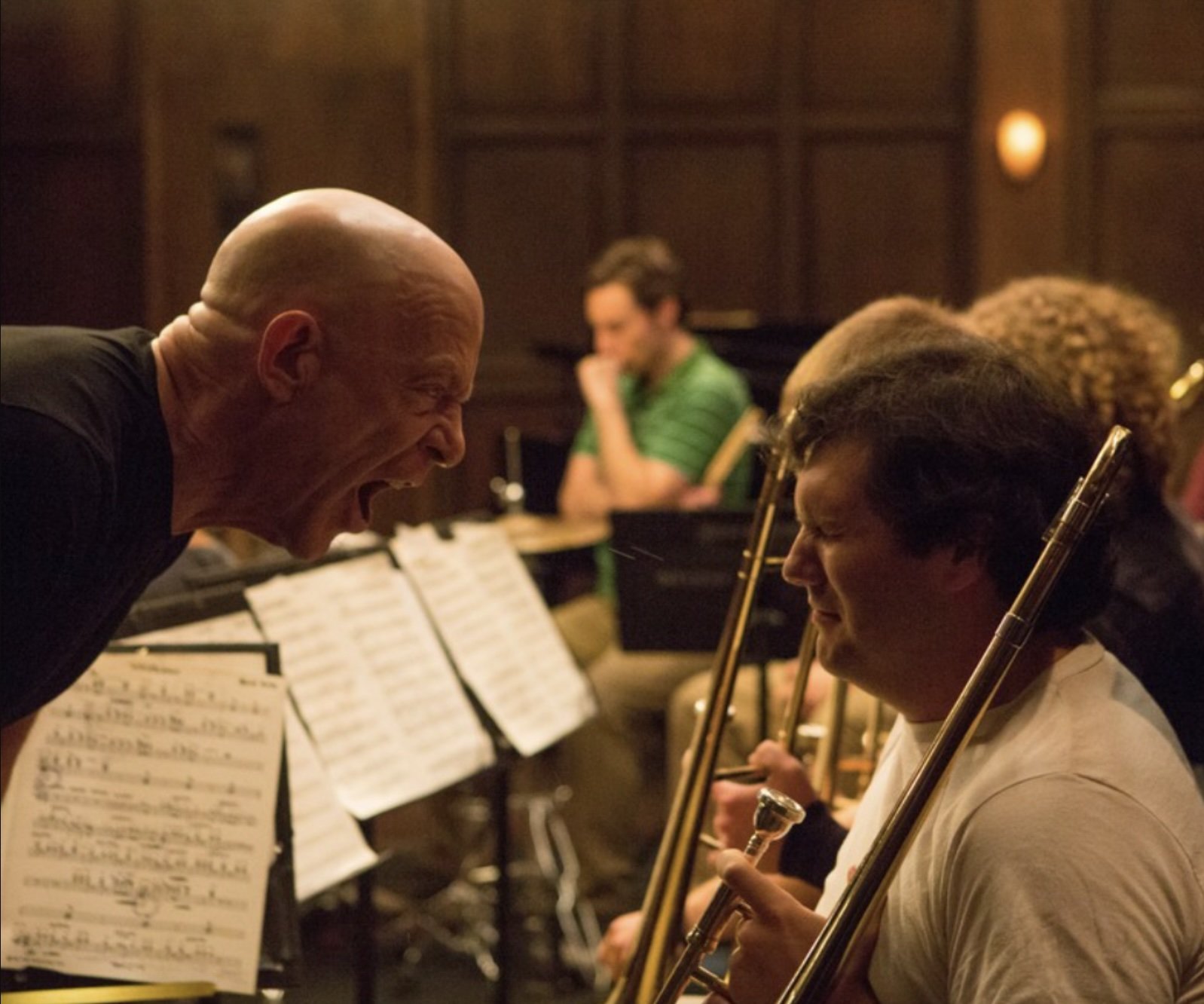When ‘Self-Exploitation’ is in the Job Description.
Musicians and Burnout Culture
A Help-Wanted Ad for the job: “Musician”
As our ideal candidate, you should…
start intensively practicing as early as possible,
preferably before you’re out of diapers.
(the great Hilary Hahn in diapers)
2. sacrifice a whole lot of play-time during childhood
for alone-time scowling at your instrument.
3. look for teachers and mentors who viciously and consistently tear you down.
These are the only honest appraisals of your worth and the suffering will definitely result in alot of success.
It helps if these guys are also certified gurus!
(Click here for an article about gurus)
4. become completely obsessive about it:
make sweeping statements (preferably in interviews)
about how a day away from your instrument is a day completely wasted.
5. feel bad about yourself if you didn’t perform at 100% in your last concert, and continue to feel bad for as long as possible.
6. If someone compliments you, counteract with some self-deprecating statement about how terrible the performance was:
it makes you come across as more committed!
7. Invest as much time and money as you humanly can into your music profession, doggedly holding onto the belief:
the more you give, the more likely you are to be successful!
Hieronymus Bosch’s “Concert in the Egg” (1561)
8. Find Jerks to associate with.
The Bigger the Jerk, the Greater the Artist!
9. Put family, friendships, and non-musical activities in the back seat.
The only thing that counts is the music.
I was kidding.
This isn’t a job description for being a musician.
This is a recipe for burnout.
We speak a lot about Burnout nowadays.
But what is it?
Burnout is a state of emotional, mental, and physical exhaustion, a depletion of internal resources.
The metaphor of a fire extinguishing itself carries with it a notion of a draining of energy. An early burnout researcher, Wilmar Schaufeli wrote: “[The term burnout] implies that once a fire was burning, but the fire cannot continue burning brightly unless there are sufficient resources that keep being replenished.”
Burnout has three main characteristics:
1. emotional exhaustion
2. cynicism/distancing/depersonalization
3. reduced work performance.
Emotional exhaustion encompasses the feeling of being overstrained and depleted in terms of one’s own physical and psychological resources. Anxiety, fatigue, and depressed mood are also symptoms associated with burnout. Sleep disorders, the inability to feel rested after breaks from work, and physical ailments such as gastrointestinal problems, headaches, backaches, and increased susceptibility to infection may also be present.
The second characteristic “cynicism/distancing/depersonalization” means that one experiences increasingly negative or inappropriate attitudes towards colleagues, irritability, a loss of idealism, and withdrawal. Depersonalization is defined as a psychological withdrawal from relationships and the development of a negative, cynical, and callous attitude.
The characteristic “reduced work performance” involves concentration disorders, reduced creativity, and a reduction of competence, as well as job satisfaction.
Too long a sacrifice
Can make a stone of the heart.
William Butler Yeats
Musicians, especially older ones, can be plagued with cynicism. Their hearts might have turned a bit stoney. Many of them hold influential roles, engaging with young musicians as teachers and role models. Give an elderly musician one glass of wine, and you may be subject to a litany of age-old grievances, slights, prejudices, and venom.
From the outside, one would think that intimate contact with music – one of the most wondrous parts of humanity – would immunize a person against cynicism.
It can’t be the music that is to blame for hardening a person’s heart: maybe it’s the music world.
The music industries often create ideal conditions for burnout.
Contrary to public perceptions of music-making just being a way to turn a fun hobby into a job, professional music-making imposes heavy demands on artists, which can lead to or exacerbate physical, emotional, and social adversities.
Below are some reasons musicians are vulnerable to burnout:
Musicians often grapple with (mental) health issues, including anxiety (i.e. stage fright), musculoskeletal problems (i.e. overuse syndrome), vocal injury, hearing loss, depression, burnout, and chronic pain. Such issues are most likely underreported due to the dangers most musicians associate with the disclosure of professional vulnerabilities, and these adversities are heightened during societal crises.
The music industry operates in a culture of constant critical evaluation, with low tolerance for sub-optimal performance.
Professional musicians often require over two decades of intensive training, resulting in a specialized skill set that may not align with professional demands. The narrow skill set complicates matters when musicians need to restructure their work due to injury or job loss.
Entrenched and conservative hierarchical structures in music organizations contribute to occupational stress.
Societal upheavals like geopolitical disruptions and the digital revolution expose foundational weaknesses in music-industry structures.
Musicians often face financial precarities, bad working conditions, and tenuous legal-occupational protections.
There is a lack of oversight and transparency for the sector’s gatekeepers.
There’s so much change that needs to happen in the music industry to protect the musicians, to protect the music. We have a long road ahead.
Too long a sacrifice hardens the heart.
I recently heard a buoyant interview with Yo-Yo Ma and Krista Tippett. Ma was in full inspirational mode, carrying the audience with infectious lightness and affable conversation. He stated that he was currently living his best childhood, at age 60. Though he sacrificed much of his childhood to music, he was able to grab it back later in life.
There are many altruistic people one encounters in arts fields, but usually they are young. It’s much rarer that people hold on to enthusiasm and the will to do something beneficial as they age; to bypass the encroaching cynicism, the looming darkness, the unused potentials, the bottomless sadness.
How does one avoid the pit of burnout?
This has been occupying philosophers, poets, musicians, and other artists since the beginning. They might have had other words:
The Dark Night of the Soul
The Abyss
The Valley of Shadows
The Heart’s Winter
It was the thing that set Dante off onto his journey:
In the middle of the journey of our life I came to myself within a dark wood where the straight way was lost.
Ah, how hard a thing it is to tell what a wild, and rough, and stubborn wood this was, which in my thought renews the fear!
― Dante Alighieri, The Divine Comedy
And a more recent reflection on this darkness comes from Rainer Maria Rilke:
You, darkness, that I come from
I love you more than all the fires
that fence in the world,
for the fire makes a circle of light for everyone
and then no one outside learns of you.
But the darkness pulls in everything-
shapes and fires, animals and myself,
how easily it gathers them!
-
powers and people-
and it is possible a great presence is moving near me.
I have faith in nights.
Rainer Maria Rilke
We cloak such experiences nowadays in scientific and mechanistic language and learn that such states are to be avoided at all costs as a symptom of failure.
While keeping oneself out of an abyss is, of course, preferable to falling into one, one can understand that “dark nights of the soul” have a place in our human story. At the same time, one recognizes that these dark nights have a colossal power that can totally overwhelm. If one can protect oneself from the overwhelm, it is one’s duty to do so.
How?
By searching for the meaning, even if it is a tragic sense of meaning, in our fullest human experiences.
By learning to navigate poles of acceptance and will to change, and Reinhold Niebuhr wrote:
“Give me the grace to accept with serenity
the things that cannot be changed,
Courage to change the things
which should be changed,
and the Wisdom to distinguish
the one from the other”
By learning to take rest as seriously as one takes busyness.















